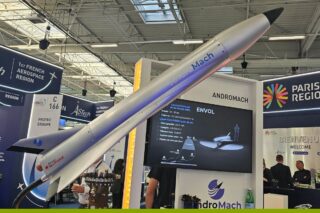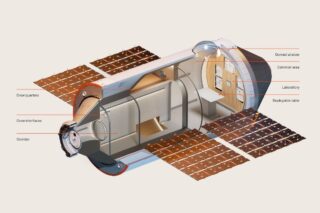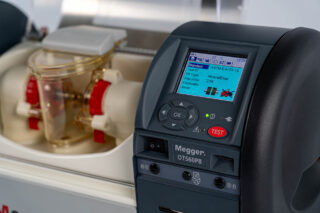While electric cars are winning over consumers in the push to go green, hydrogen looks set to carry the load when it comes to decarbonizing heavy-duty transport fleets.
Transport has the highest reliance on fossil fuels of any sector, accounting for 37 percent of CO2 emissions from end‐use sectors in 2021, according to the International Energy Agency. This makes transport a key focus as the EU aspires to achieve net zero by 2050.
From 2025, European regulators require manufacturers to cut CO2 emissions for new on-highway trucks by 15 percent compared with 2019 levels. The reduction target will increase to 30 percent by 2030, with a proposed further increase to 90 percent by 2040
When it comes to weaning heavy-duty vehicles off fossil fuels like diesel, using hydrogen fuel cells to produce electricity has several advantages over electric vehicles relying on batteries.
RELATED ARTICLE
Hydrogen Vehicles vs. Electric Vehicles
Firstly, the materials for making fuel cells are not as scarce as those required for EV batteries, plus fuel cells have a much longer lifespan. Hydrogen fuel cells also offer far greater energy storage density than batteries, making them smaller and lighter which helps increase range.
Unlike battery-powered vehicles, hydrogen-powered vehicles can be refueled in just a few minutes. This is a significant benefit in the transport sector which incorporates buses, trains, trucks, ships, and airplanes, as well as logistics vehicles such as straddle carriers for lifting shipping containers.
The challenges with hydrogen include producing green hydrogen from clean energy sources, as well as hydrogen’s reduced energy efficiency and increased safety concerns compared to relying on lithium-ion batteries.
A challenge with both technologies is that they require redesigning heavy-duty vehicles around new electric motors and drivetrains. Trucks in the EU were, on average, 14 years old in 2020, according to the European Automobile Manufacturers’ Association. As such, it could take decades to phase out those relying on combustion engines and fossil fuels.
In the short to medium term, hydrogen combustion engines and dual-fuel combustion engines offer an upgrade path for existing heavy-duty vehicles, without the need to redesign the drivetrain or retrain mechanics and maintenance staff.
RELATED ARTICLE
EHM: Hydrogen Combustion Engines
France-based Efficient Hydrogen Motors (EHM) is collaborating with Alliance Automotive Group to install its cutting-edge hydrogen combustion engines in heavy-duty vehicles across 14 countries.
EHM is working on a five-stroke hydrogen combustion engine, more energy efficient than a hydrogen fuel cell, which can be retrofitted into large vehicles such as trucks, buses, and passenger boats. The company plans to develop its own engine production factory by 2025 on a 20,000 m2 property in Châteaulin.
Hydrogen combustion engines are less expensive than hydrogen fuel cells and less reliant on precious metals. They can also run on lower-purity hydrogen than fuel cells, says EHM chief executive officer Didier Arénal.
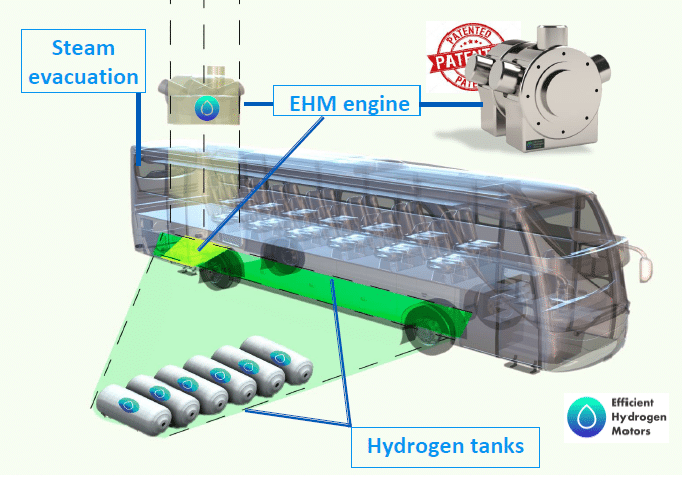
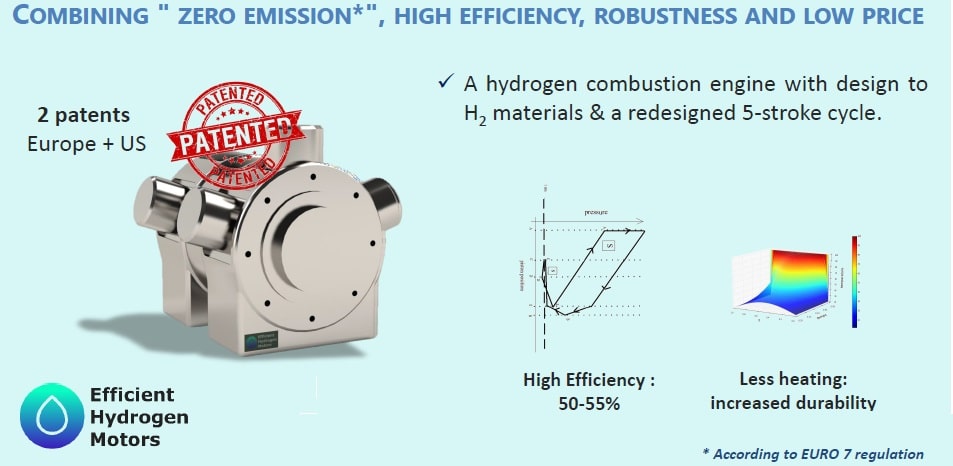
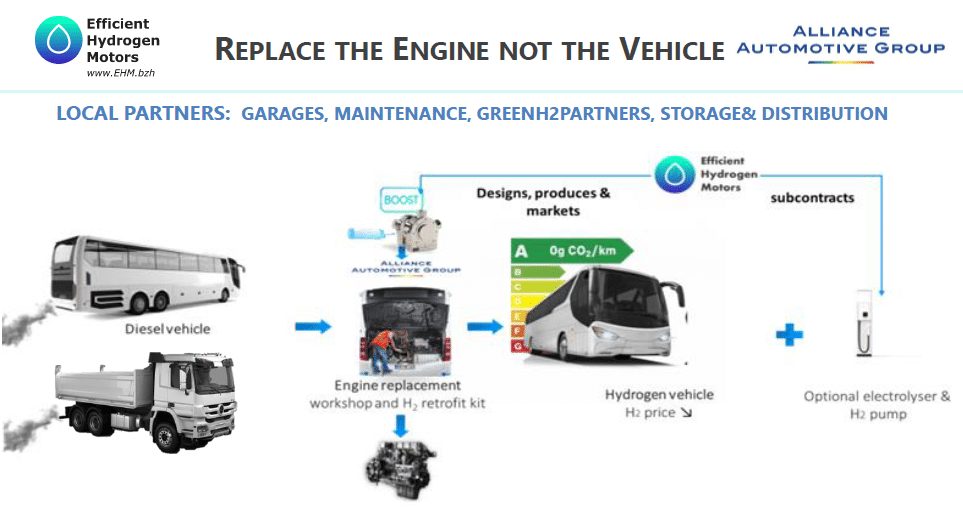
While EHM is initially focused on the retrofit market, its hydrogen combustion engines could eventually be installed in the factory if deals are struck with major manufacturers, Arénal says:
“Starting with the retrofit market will speed up the transition away from fossil fuels and help the world reach environmental targets. Sticking with combustion engines makes the transition to hydrogen much more affordable and requires minimal modifications when installing the new engine. All of this makes it a lot more attractive for transport companies than expecting them to quickly embrace hydrogen fuel cells.”
One of the key challenges in moving away from fossil fuels is establishing a hydrogen distribution network, says EHM financial and business advisor Bertrand Savatier.
Until more hydrogen refueling stations are available, some large transport fleets might find it more practical and economical to refuel at their depot. EHM has partnerships with hydrogen production and distribution companies in order to offer customers a complete solution.
The demand for green hydrogen produced from solar power opens up options to decentralize the production, distribution, and storage of hydrogen, Savatier says.
“One of our partners wants to develop a network of hydrogen fuelling stations with electrolyzers for producing hydrogen onsite. Combining the proven and well-supported technology of combustion engines with decentralized hydrogen production can be a game-changer in the transport sector’s push to quickly move away from relying on fossil fuels.”
CMB.Tech: Dual-fuel Combustion Engines
Dual-fuel combustion engines, capable of running on hydrogen and diesel, also offer a strategic stepping stone towards net-zero targets, says Roy Campe, chief technical officer of Belgium’s CMB.Tech
Rather than swapping out the diesel engines in trucks, CMB.Tech’s technology allows for the installation of hydrogen injection on diesel engines, as well as the addition of hydrogen storage tanks.
Dual-fuel combustion engines are an affordable transition technology that allows transport companies to phase out their reliance on diesel while also supporting the spread of hydrogen fuelling stations, Campe says.
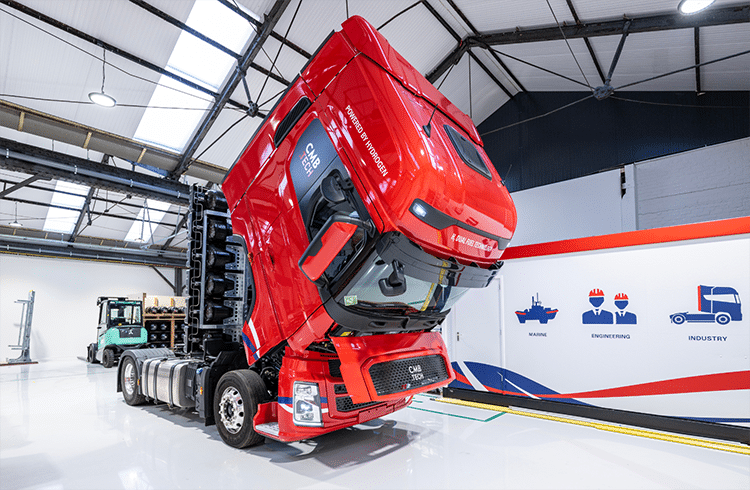
For now, CMB.TechH only supports aftermarket upgrades of large fleets, but Campe says the technology will eventually be factory-installed on new vehicles.
“Dual-fuel is practical for long-haul trucking where hydrogen refueling might not yet be available in some areas, plus it allows diesel to handle more of the load in winter when less sunshine means less energy to make green hydrogen.”
He also adds:
“All of this gives transport operators more confidence to embrace hydrogen today, while also laying the groundwork for the future by supporting the development of the hydrogen distribution infrastructure required for vehicles which run solely on hydrogen.”








